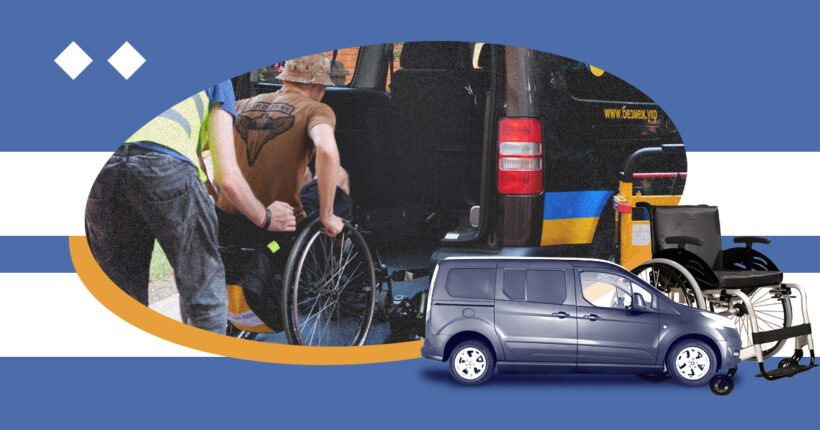
What is the problem?
The massive invasion that commenced on February 24, 2022, completely upturned the lives of nearly every Ukrainian. Countless citizens answered the call to defend the nation against Russian aggression, leaving behind their loved ones, careers, and thriving endeavors. Now, as these brave individuals return from the front with injuries that prevent further service, many require assistance – for complete rehabilitation, adjusting to civilian life, adapting to a new reality and opportunities, or making modifications to accommodate their physical needs.
What is the solution?
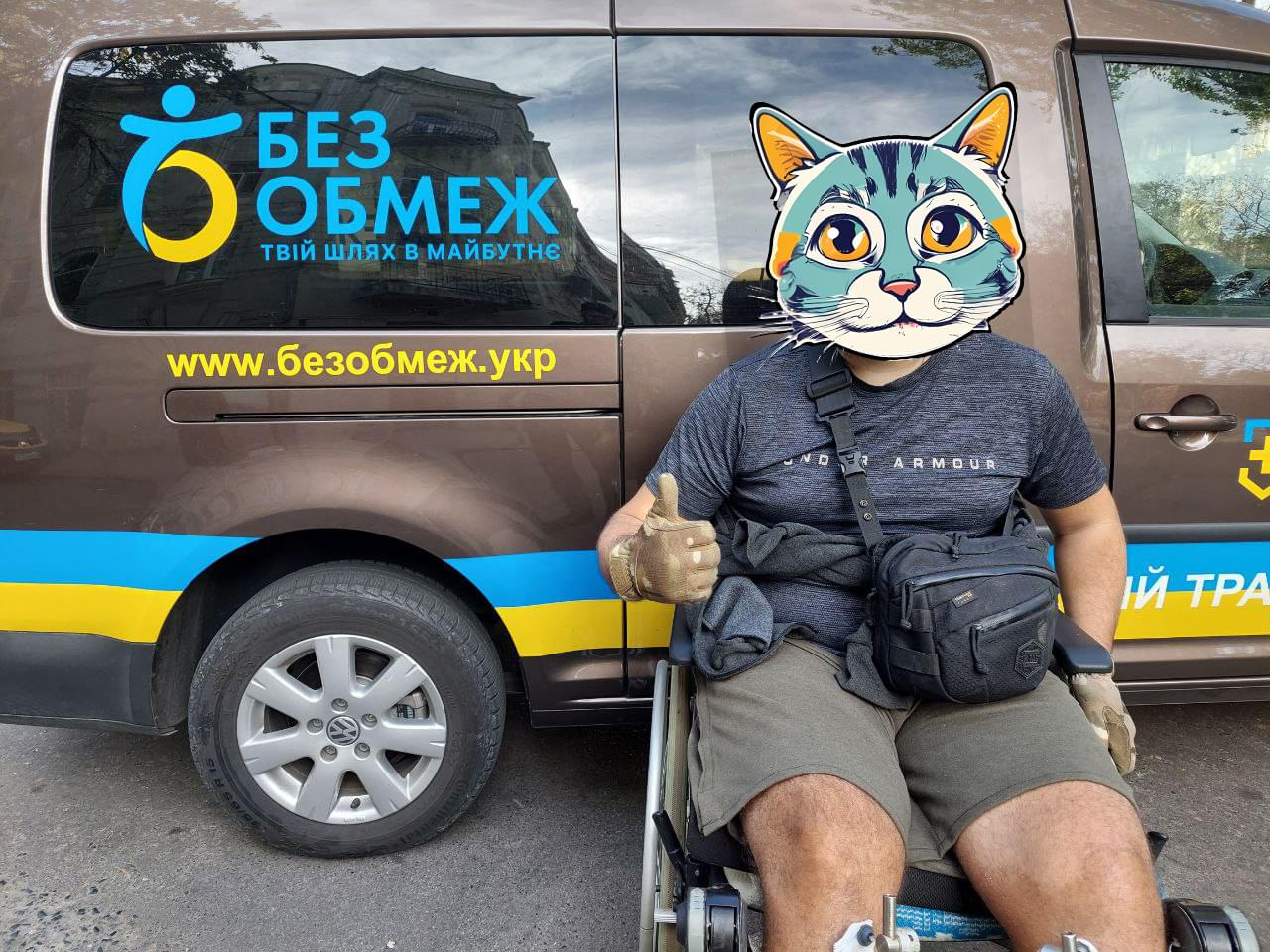
In Odesa, a special transfer was arranged for injured defenders who are now wheelchair users.
The "BezOmbezh" project aims to provide complimentary transportation aid to military personnel and veterans who need rehabilitation and medical attention and may have difficulty navigating the city or utilizing public transportation independently.
"BezOmbezh inclusive transfer" is a project that is currently being piloted. It is carried out by the NGO "National Health and Safety Council" team and is financially supported by the "PARAMEDIK" group of companies.
How does it work?
With comfort and without layovers
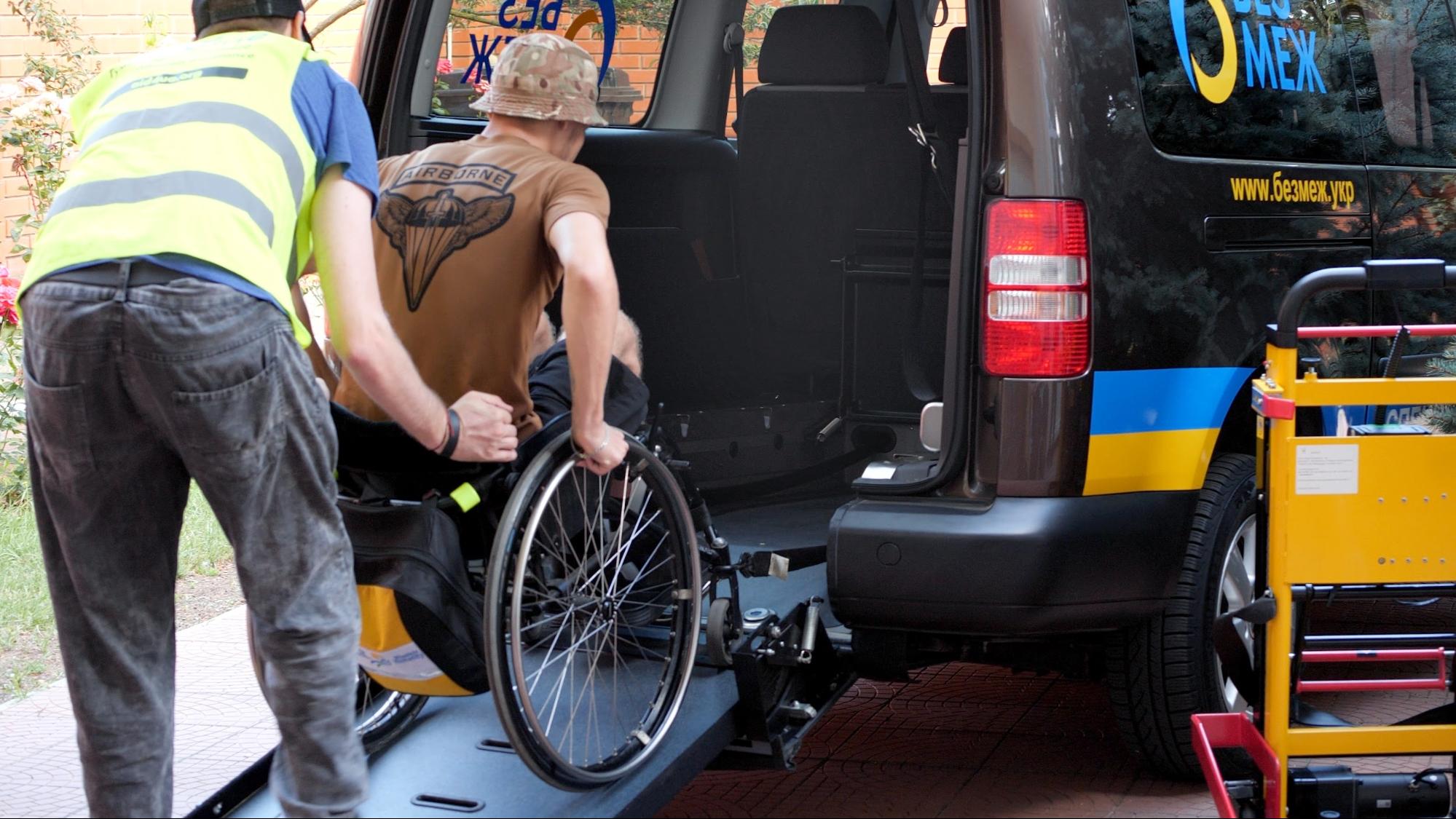
Inclusive transfer is an essential social service for creating decent living conditions for our defenders who have been seriously injured.
The person who came up with the project to aid injured soldiers in regaining their mobility is Nikita Karpenko, the leader of the non-governmental organization "National Health and Safety Council." Karpenko was motivated by his own experience with the difficulties faced by wheelchair users in his hometown. He explains that there are still limited accessible locations in Odesa. Therefore, he raised funds for the initial launch of this initiative with the help of Ukrainian military officer Larysa Yushkevych.
"According to the Ministry of Social Policy, Ukraine currently has a population of 3 million people with disabilities, with an increase of approximately 300,000 in the last year and a half. As soldiers who are unable to continue their service due to injuries return, we anticipate an even greater number of veterans in the future. In Odesa alone, there are over 5,000 veterans with group 1 and 2 disabilities, including individuals who require wheelchairs and additional assistance for mobility," shares Nikita Karpenko.
People with disabilities in Ukraine, including those who use a wheelchair or have limited mobility due to injuries, can benefit from the "BezOmezh" project as they are unable to utilize public transportation. This project is specifically available to:
- veterans and members of the Anti-Terrorist Operation of Ukraine/Joint Forces Operation/protection during a full-scale war;
- as well as servicemen and women from various agencies, such as Ukraine's armed forces, National Guard, the Security Service of Ukraine, the Foreign Intelligence Service, the State Border Service, the police, the State Special Communications Service, the State Emergency Service, who have directly contributed to the defense and protection of Ukraine against Russian aggression.
"We are aware that many military personnel and veterans are currently in bureaucratic limbo, unable to obtain a participant in hostilities or disability status even though they have been serving for many years. Some may not even have official confirmation of their status despite having served in good health for a decade. That is why we do not necessarily require all the mentioned documents from them, and instead, assess each case individually in case of any doubts," project manager Alyona Makovetska explains.
Currently, the project has one Volkswagen Caddy Life Wheelchair Accessible Vehicle (WAV). It is specifically designed for transporting individuals who use wheelchairs, complete with a wheelchair ramp, electric straps, and safety belts for passengers. The vehicle also features a powerful stairlift capable of carrying up to 200 kg, making it easy to navigate staircases in tall buildings even without an elevator.
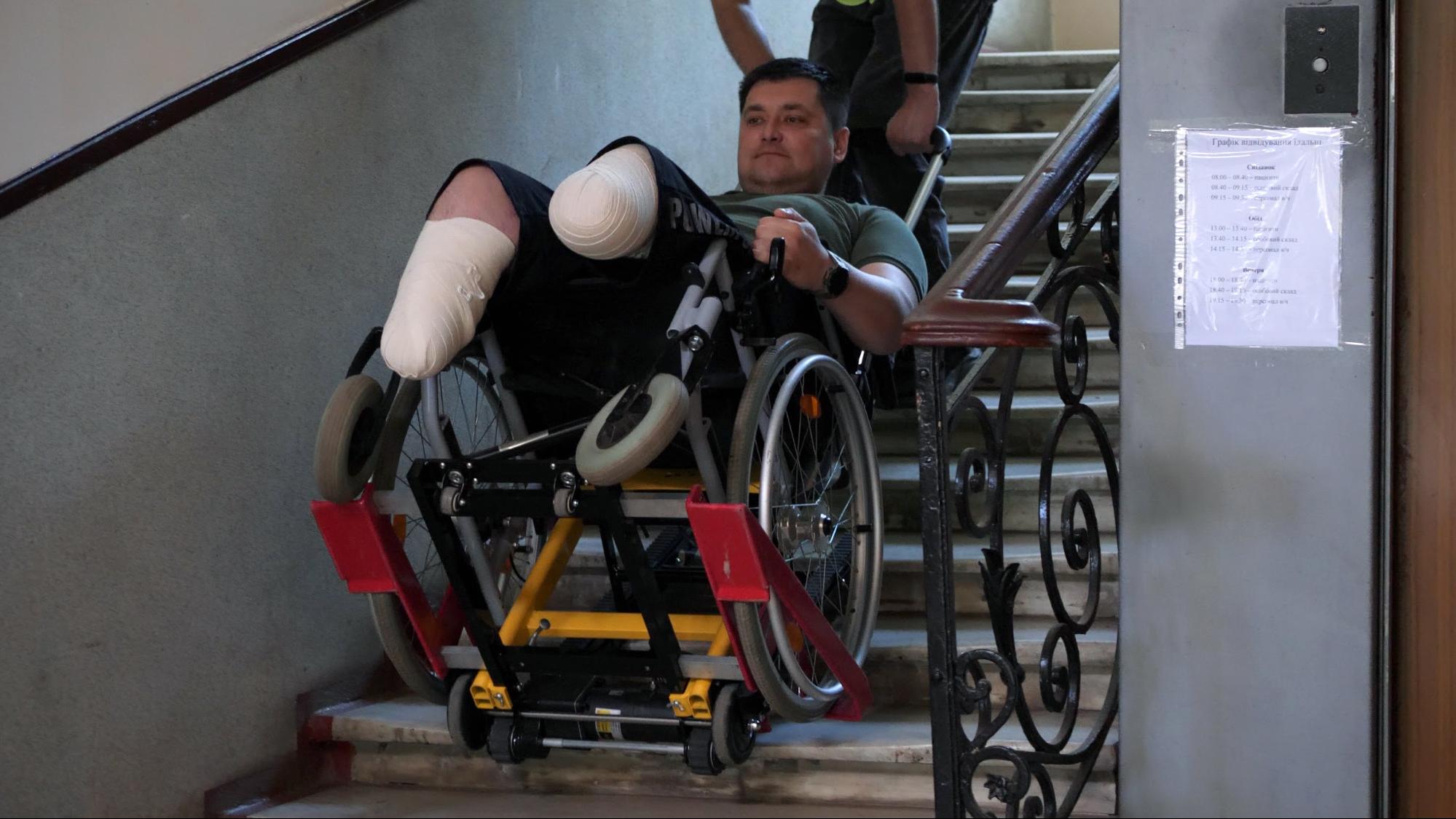
If needed, the service provides a stair lift to assist in moving a person in a wheelchair up the stairs.Alyona Makovetska explains:
"In comparison to for-profit inclusive taxis (specifically in Odesa, these are usually vehicles with stretchers similar to those in ambulances, where a person can be transported while semi-seated or lying down), that charge 1,500 UAH for one-way transportation and separately for assistance with getting on and off the vehicle, the "BezOmbezh" project offers completely cost-free, all-inclusive transportation. We have the equipment to lower a person with a stair lift smoothly, transport them to their desired destination, and return them safely. Our service utilizes the passenger's own wheelchair for convenience and to maintain individual settings."
In a wheelchair, but not in a trap
In August, a free transportation service was introduced in Odesa. The Government Commissioner for the Rights of Persons with Disabilities for Odesa Regional State Administration, Oleh Sokolov, was its inaugural passenger.
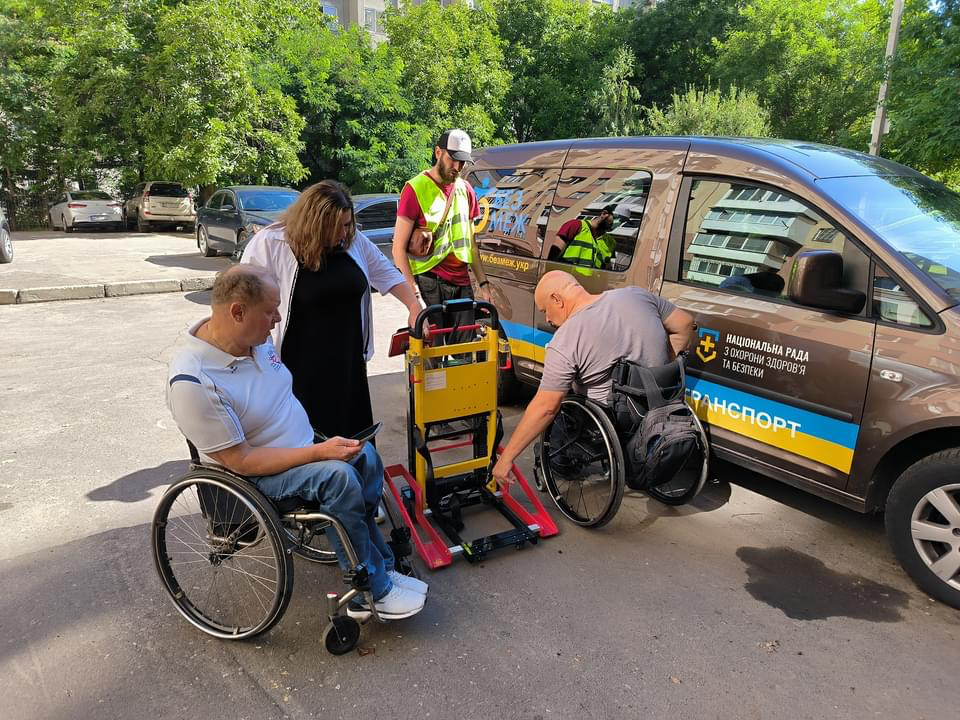
Oleh Sokolov tests a car of the "BezOmbezh" project.
"This is an excellent initiative! I personally had the chance to try out the transportation, and I'd like to sincerely thank the creators and coordinators of this project and all those who are backing it," says Oleh Sokolov, sharing his thoughts. "This is a highly significant issue today, as the number of people with disabilities unfortunately grows with each passing day. It's the harsh reality of war. I truly appreciate those who recognize our duty to provide suitable living conditions for the individuals who bravely defended our Ukraine and suffered serious injuries in the process."
In just under four months since its launch, "BezOmbezh" has completed 372 trips and transported over 200 passengers.
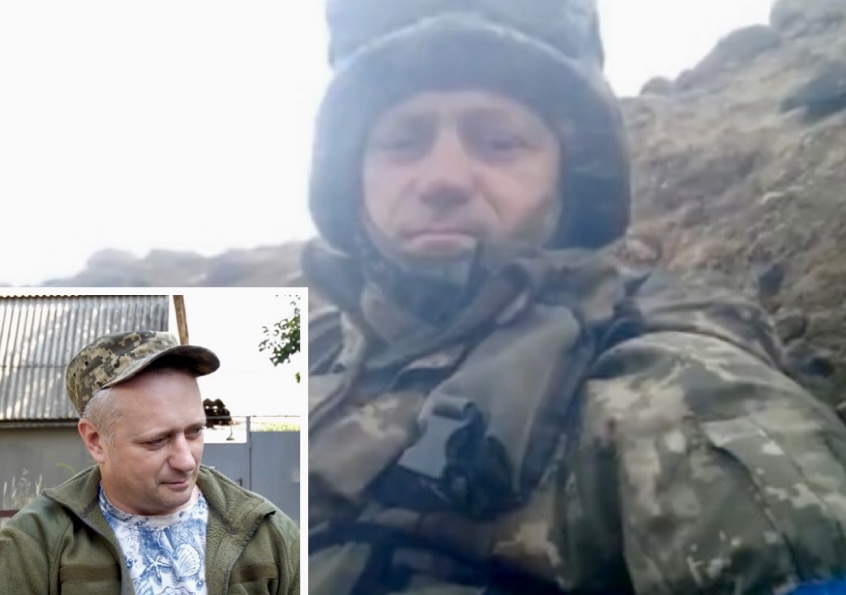
Serhiy suffered a severe head injury and is now using a wheelchair and undergoing rehabilitation.
One of them is Serhiy, a soldier. He began serving in Ukraine's armed forces a year ago and fought in the southern region. One day, near Kherson, Serhiy and his fellow soldiers were ambushed and came under enemy fire. A piece of shrapnel from a cluster projectile caused a severe injury to his head. Thankfully, Serhiy's life was saved, and he survived the operation. However, he now uses a wheelchair and is undergoing an arduous rehabilitation process. It was challenging for him to get to the medical center by taxi, but his wife discovered the "BezOmbezh" volunteer project and asked for assistance. She says that now it is much more convenient for them to go for treatment – there is no need to take him out of the wheelchair, and they do not have to worry about his safety while on the road.
"You know, in military units, when someone is seriously injured or loses a limb, they are always told the same thing: to seek help from a charity organization or volunteers. And it's true – the military often doesn't have enough resources to cover all the costs of rehabilitation and treatment," explains Larysa Yushkevych, co-founder of the project. "We have rehabilitation centers that offer free services for military personnel, but many people miss out on the opportunity due to transportation issues. This "BezOmbezh" project is a pilot program, and it's crucial that such a service is available in every community."
To the beach, to the barbershop, to the theater
For veterans, having an accessible car isn't just about easily accessing medical facilities, train stations, and social services. It's a chance to undergo rehabilitation, regain mobility and communication skills, and have hope for returning to a fulfilling life. This project allows them to receive treatment, relax, and gain new experiences.
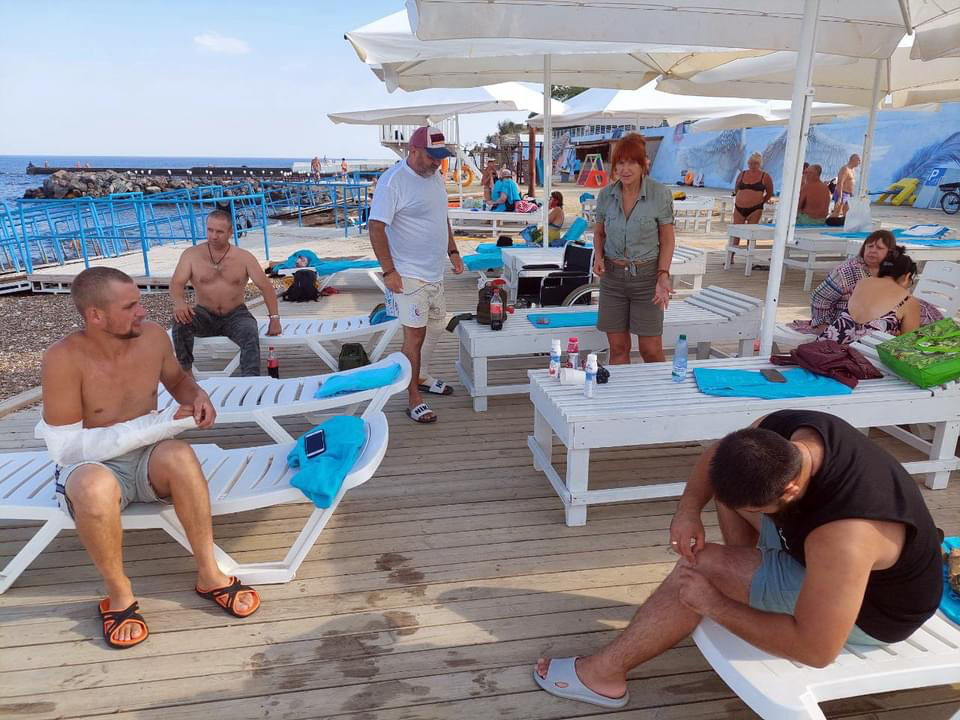
Rehabilitation must take place not only within the walls of the hospital
Therefore, in early September, a specialized vehicle transported recovering soldiers to a nearby beach for relaxation. The injured defenders spent a few hours simply enjoying the sea breeze and observing the seagulls; some even dipped in the pleasantly warm water.
"As with any project, we constantly develop and implement our hypotheses. Within our chosen concept, we continually add new options. We firmly believe that individuals in wheelchairs should not be limited to a monotonous routine of home, hospital, and back home. It is heartbreaking, frightening, and unjust when they cannot access places like the seaside, only a kilometer away from where they live. Therefore, considering the principle of priority, we have made it our mission to take our passengers to various locations that will help a person live a full life. We understand the importance of positive emotions in the recovery process and work closely with volunteers to provide uplifting experiences for those we serve," Alyona Makovetska says.

At the "Masks" theater in Odesa
One of the institutions cooperating with the project is the "Mask" theater. The theater slogan is "We know how to make people happy!".
"This is pure and brilliant truth! Our belief in it only intensified when we brought our Defenders to the hospital and returned with them. It was a true celebration for all involved. For the boys, it meant leaving the hospital walls and exploring Odesa's warm and charming old city while watching a vibrant and truly Odesa play. For the actors, it was an honor to have such esteemed guests. Just by looking at their joyous smiles, it is clear that we are on the right path!" Alyona Makovetska, the leader of the "BezOmbezh" project, shares.
On another occasion, the "BezOmezh" project assisted in providing visits for six military personnel receiving treatment and rehabilitation at different locations in Odesa. The visits included stops at a barbershop and a movie theater.
Surprisingly, not everyone in Odesa knows the free "BezOmbezh" transfer. Alyona Makovetska explains that "BezOmbezh" is a relatively new project; therefore, it relies on the support and assistance of the community in spreading the word. She urges all Ukrainians to help promote the initiative:
"If you know any volunteers, doctors, or rehabilitators in Odesa, please inform them about a project in our city focusing on aiding defenders with mobility issues. Despite the abundant volunteer support in our country, many individuals still struggle to trust in free assistance. Trust me, it's genuine!"
Contact the project's hotline at +38 (095) 506 25 53 to utilize the complimentary transportation service in Odesa.
Even more helpful solutions!
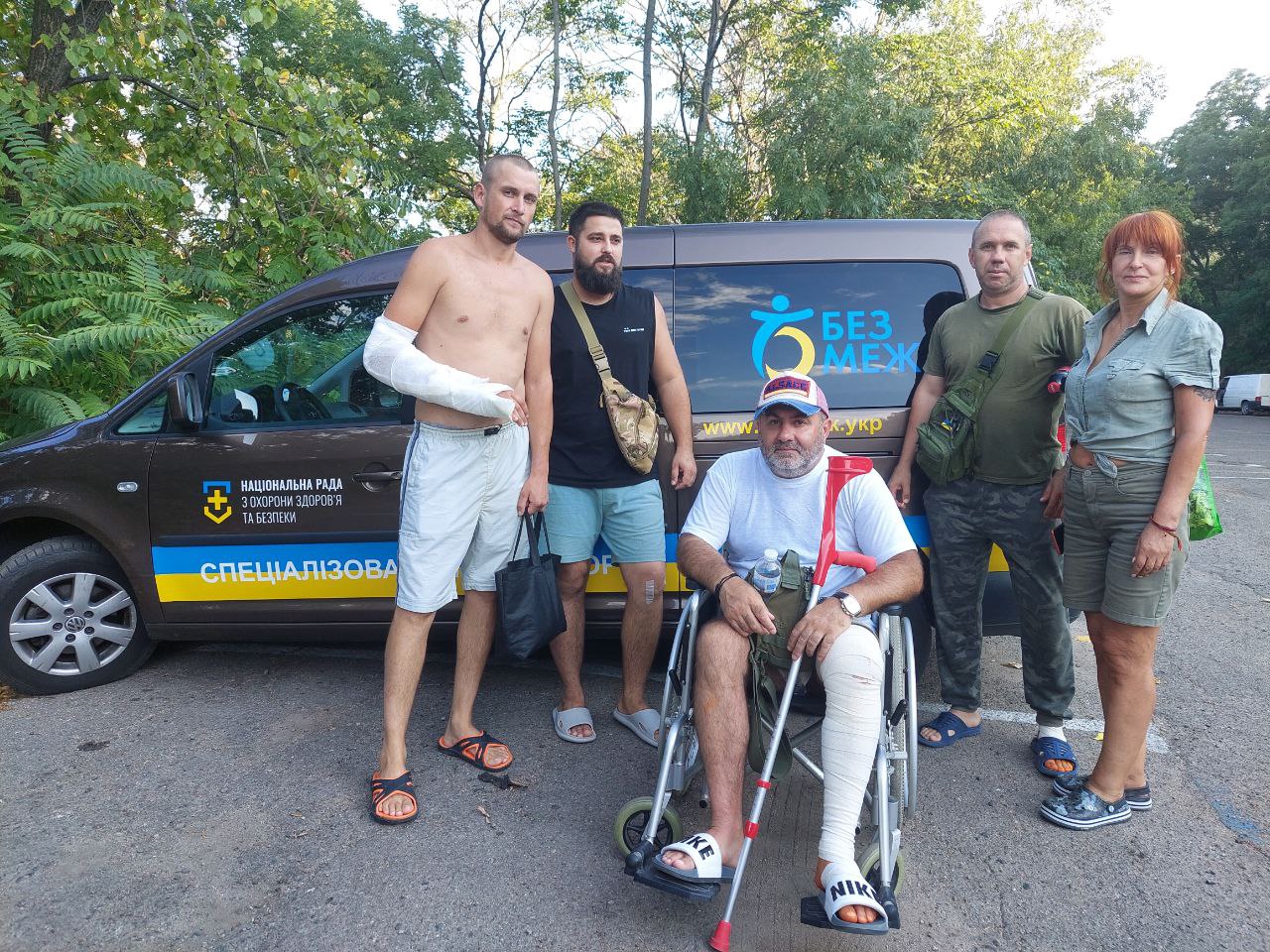
Defenders undergoing treatment in one of Odesa's hospitals
According to the National Health and Safety Council, their organization is fully committed to the continued growth and success of the "BezOmezh" project. This includes expanding the project's reach to other cities and increasing the number of vehicles and the range of accommodations for people with disabilities. The NGO will also advocate for long-term changes to promote inclusivity in Odesa and throughout the country.
"To ensure a successful transition back to civilian life, military personnel and veterans must understand that resources are available to help them address any issues that may have arisen during or after their service," Alyona Makovetska emphasizes. "As activists, we are not simply waiting for soldiers to return from war and fix any problems that may arise. Many of them return and will continue to return, with varying levels of injuries. Everyone who is now in the rear is in debt to our defenders. It is our responsibility as a society to honor and support our defenders. That's why we must do everything we can to assist veterans with bureaucratic processes, provide access to basic necessities and services, and give them opportunities for rest and relaxation."
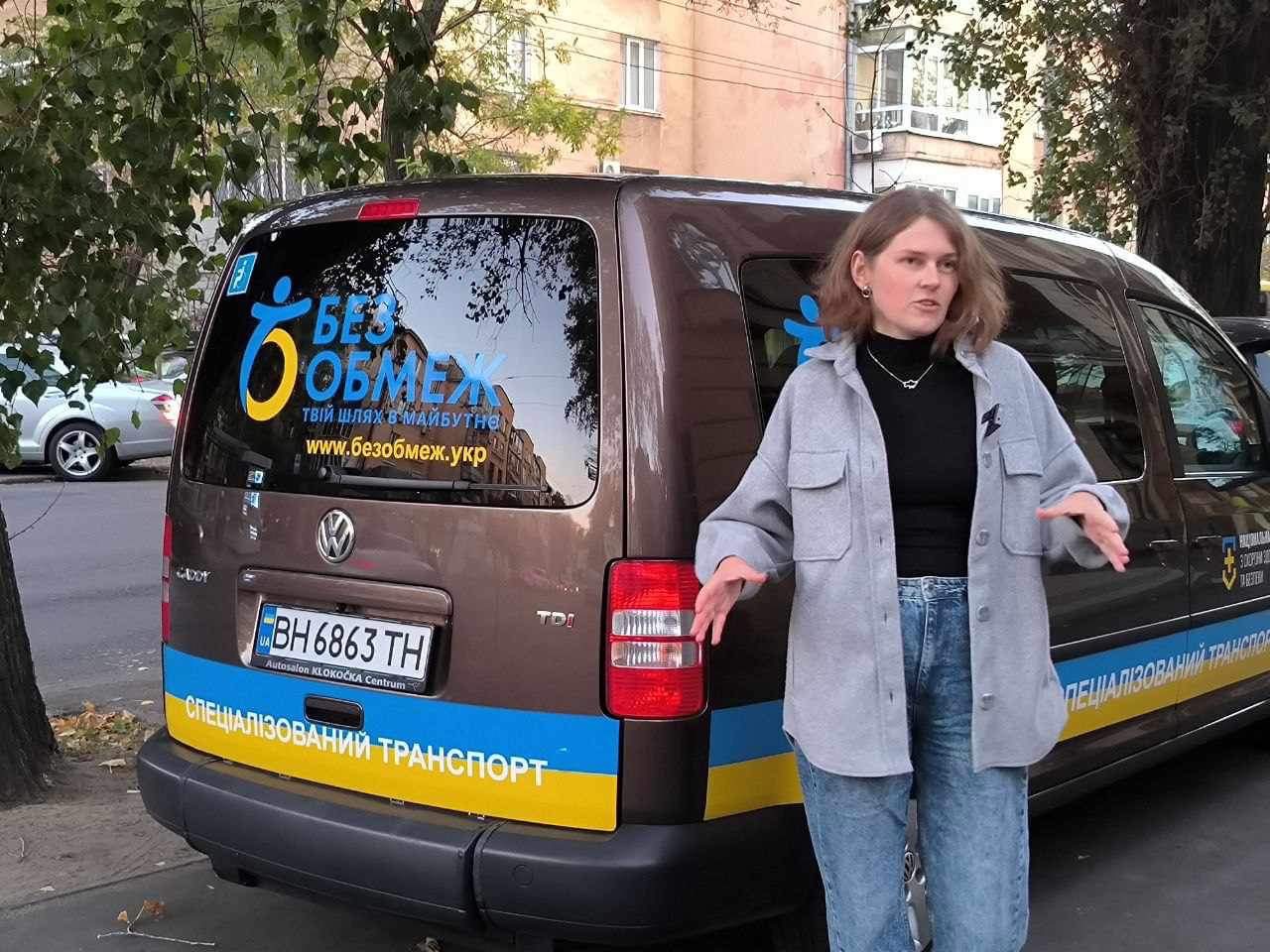
Alyona Makovetska
The "BezOmbezh" project leader acknowledges that discussing veteran policies, Ministry of Veterans Affairs projects, and available rehabilitation, treatment, and prosthetics options can take a long time. However, the main issue is the lack of accessibility for wheelchair users, who rely on the aid of family, partners, friends, or volunteers to leave their fourth-floor Khrushchev-era apartments. Numerous institutions also lack proper ramps or only have them for show. Additionally, streets with no exits, dangerous ramps, and broken elevators make it nearly impossible for wheelchair users to navigate.
"We want to be able to look into the eyes of veterans, knowing that we did everything in our power to improve the accessibility of cities for everyone who loses their time, health, or even life for our safety.
We aim to increase accessibility for individuals with reduced mobility or wheelchair users in Ukrainian cities. This also benefits parents with young children, older individuals, and those recovering from injuries. Equal access to services for all individuals is crucial. Normalizing individuals with disabilities and prosthetics in society is essential, and for this to happen, they must be able to leave their homes in the first place," Alyona Makovetska sums up.
Newsletter
Digest of the most interesting news: just about the main thing





